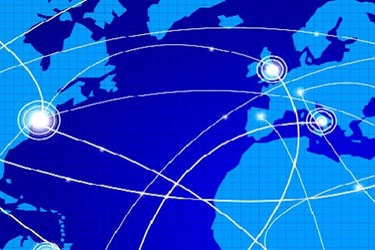How Third-Party Shippers Benefit Cold Chain Management
By Melissa Lind, contributing writer

With regulations growing more stringent, the landscape continues to grow in complexity for food carriers using the cold chain. New, cold chain management technology, along with outside help, can ease these burdens.
Some food companies rely on contract agencies for shipping, but with the increasing complexity in the market, managers need to be aware of the issues surrounding cold chain management, even if it isn’t technically their job. Parties at all levels — producers, shippers, and receivers —need to be aware of the specific procedures and protocols of each food product. Issues to consider include:
- Temperature requirements
- Humidity limitations
- Fragility of packaging
- Time to expiration of goods
These are just a few issues involved in freight forwarding. Field experts in the import/export sector suggest that shippers look to organizations, such as the Transportation Intermediaries Association (TIA) and International Federation of freight forwarder associations (FIATA), for guidance. The TIA and FIATA have advice bulletins and have indicated the following points are most important maintaining efficiency, accuracy, and compliance.
Document, Document, Document
Forwarders obviously need to know requirements of each transported item and regulations concerning transportation, such as hygiene and traceability rules, but knowing the rules isn’t enough. Documentation is everything; if it’s not documented, it didn’t happen.
The issue comes in that many international, third-party carriers don’t yet have good systems for process management and documentation. Shippers like DHL and UPS are developing logistics solutions, but smaller agencies or contractors will need to do the same. Companies that build logistics systems with documentation regulations in mind will be able to remain agile in a competitive environment. Attention should also be paid to systems that can integrate with producer and receiver platforms so that visibility within the food supply chain is more readily available. Companies that can’t provide this may be taking a financial risk if they can’t respond quickly and adequately to any food safety compromise or even a simple shipping delay.
When dealing with international shipments, FSMA requirements are not the only set of regulations involved. Each region or country may have additional, area-specific guidelines to meet. Again, documentation will be the key to success.
Justification Of Trust
When dealing with another party, you need to both trust that they can do what they say — but also verify that your trust is warranted. There are hundreds of pages of rules, regulations, and requirements and all of the evaluations that go along with those.
Shippers need to be able to verify activities were performed as required, and that includes checking the documentation. Before consigning a big amount of product, check out company policies, procedures, and matching documentation ahead of time. When a shipment is complete, verify that the documentation is in order. This will prevent future issues and help you be certain that the company can complete future jobs. Your product is entrusted to them, which really means your money. Some cold chain transporters are voluntarily obtaining third-party certification to prove to their customers that processes and procedures are in place.
You also need to verify that the third-party shipping company carries adequate insurance to cover a catastrophic failure of their system. Even the best companies can experience unexpected failures. Insurance coverage should be taken on a unique evaluation of each policy. You may also need to address issues such as protection from storm damage and theft. This may mean placement in a certain location on sea-going vessels or protecting containers from easy identification.
Cold chain shipment is a cost-intensive endeavor which means goods shipped by cold-chain carry a bigger price tag, but your business and customer relationships are worth more. Making sure that your cold-chain shipper is the best you can get will help you deliver a quality product on-time and maintain your company reputation.
